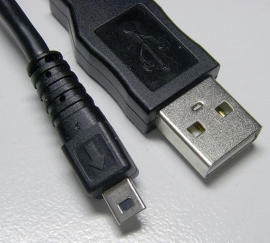Universal phone charger to work with tablets, cameras

The universal phone-charger standard has been amended to accommodate more kinds of devices, while also making it more power efficient when not plugged in.

The universal phone-charger standard has been amended to accommodate more devices, and will use standardised USB and micro-USB end connectors.
On Monday, the International Telecommunications Union (ITU) said the universal charger — first specified in 2009 — would be targeted not only at phones, but also at MP3/MP4 players, tablet computers, cameras, wireless headphones, GPS units and other devices. The result will be that such devices will no longer have to be shipped with their own chargers.
The universal charger is based on a power adaptor and a detachable cable with standardised USB and micro-USB end connectors — a specification that means it can be used for data transfer as well as charging. According to a statement from the ITU, the organisation's membership has agreed to maintain no-load power consumption for the adaptor component of less than 0.03W, which is "the most efficient available today".
"Other standards claim to be universal and energy efficient, but only ITU's solution is truly universal and a real step forward in addressing environmental and climate-change issues," ITU secretary-general Hamadoun Touré said in a statement. "This updated standard will bring the benefits of the universal charger to a wider range of devices and consumers. I am sure it will be welcomed by all ITU's membership — 192 governments and over 700 private-sector entities."
The industry rationale behind the universal adaptor is based partly on environmental considerations and partly on economics. Not shipping a separate charger with each device means less electronic waste, which makes it cheaper for manufacturers and suppliers to comply with legislation such as the EU's Waste Electrical and Electronic Equipment (WEEE) directive. It also reduces the size needed for the packaging in which the devices are sold, which in turn leads to lower shipping costs.
According to the ITU, the revamped standard will provide safer chargers that allow shorter charging times, and that now meet the requirements of the Basel Convention on e-waste.
Companies that have already committed to the universal-charger standard include most major mobile operators and phone manufacturers. Micro-USB is now the most common data and power connection in smartphones. Apple has signed up to Europe's implementation of the standard, but is yet to start shipping the adaptor that will allow such chargers to work with its proprietary dock connectors.
Get the latest technology news and analysis, blogs and reviews delivered directly to your inbox with ZDNet UK's newsletters.